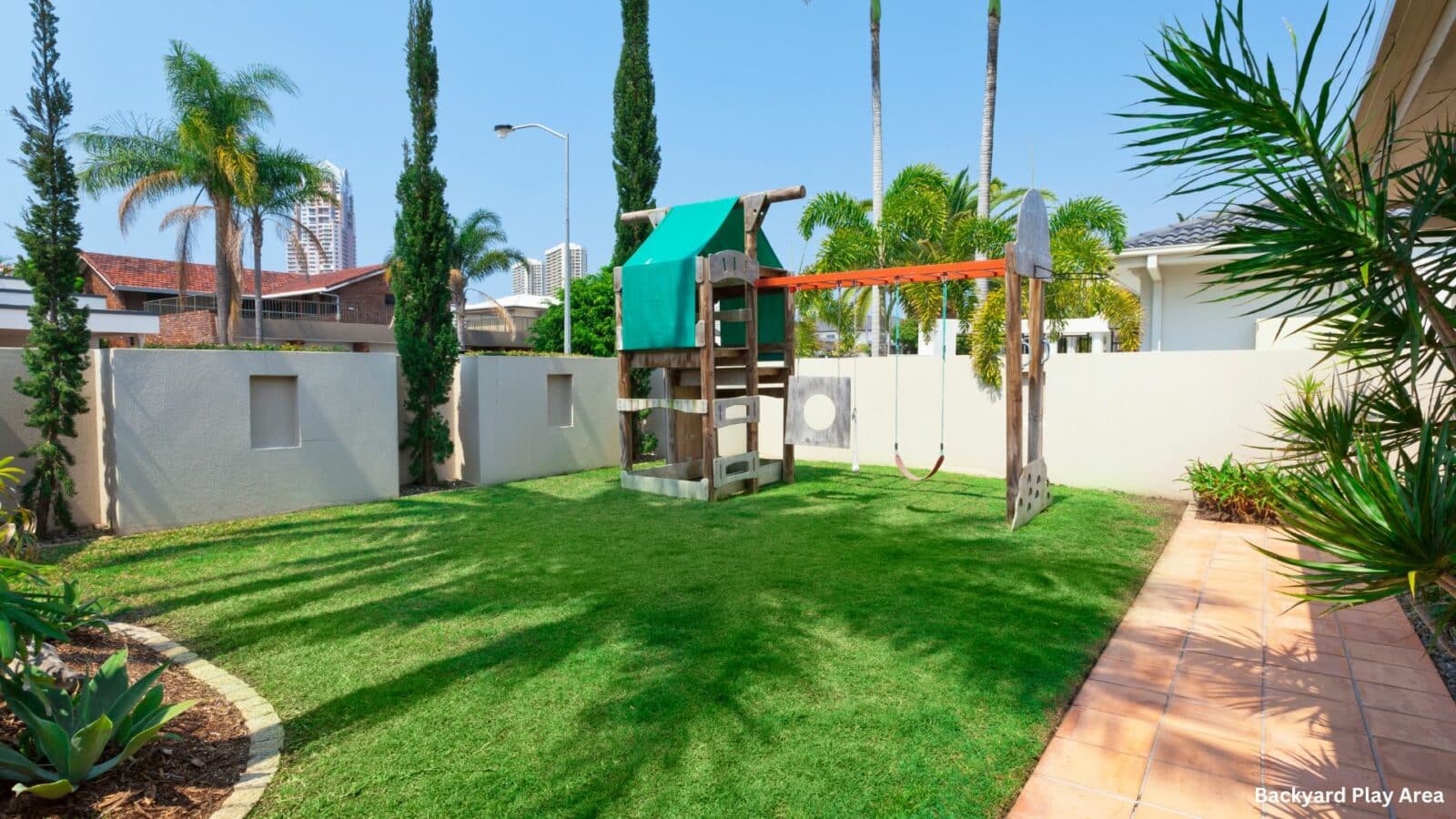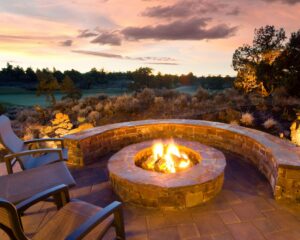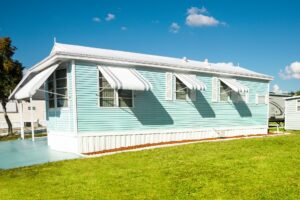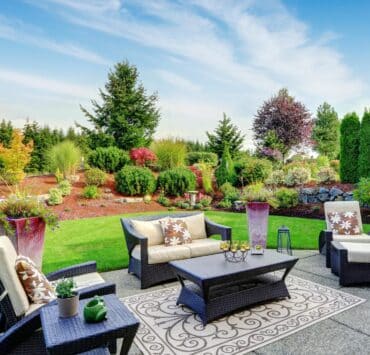Creating a backyard play area offers a delightful opportunity for children to play and explore outdoors. This guide provides a comprehensive overview of how to design and construct a playful and secure environment right in your backyard.
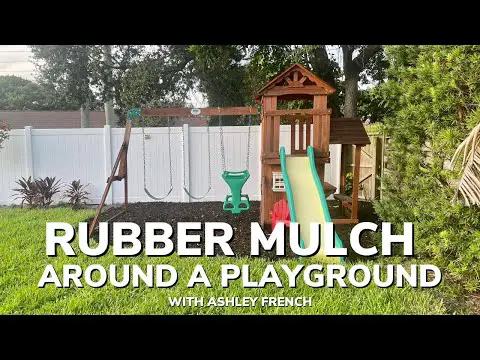
Planning Your Backyard Play Area
Start by considering the available space. Whether you have a vast yard or a modest green patch, the key is to utilize the space efficiently. Integrating various zones such as a sandbox, swing set, and climbing wall can cater to different activities and age groups, promoting both physical and cognitive development.
Backyard Play Area Ideas
1. Mud Kitchen

Utilize old kitchenware or children’s cooking sets to create a fun and messy play area. Encourage kids to indulge in creative play by mixing mud pies and other imaginative dishes, making the most of natural elements.
2. Water and Sand Table

Combine sensory play with creativity using a DIY water and sand table. This setup allows children to explore the textures and dynamics of water and sand, enhancing fine motor skills and sensory development.
3. Obstacle Course

Craft a simple yet engaging obstacle course using items like tires, ropes, and cones. This type of play equipment promotes physical activity, coordination, and problem-solving skills as children navigate through the course.
4. Swing Set

A classic addition to any backyard play area, swing sets provide both fun and physical benefits. Swinging helps develop balance and coordination and gives children a sense of freedom and exhilaration.
5. Climbing Wall

Install a DIY climbing wall to challenge children physically and mentally. Climbing walls help improve strength, agility, and spatial awareness, while also boosting confidence as children learn to navigate and overcome obstacles.
6. DIY Paver Roadways

Create miniature roadways using simple materials like concrete pavers and white paint. This not only adds a dynamic play area but also encourages imaginative play with toy cars and trucks, enhancing narrative thinking.
7. Putting Green

Set up a mini putting green to introduce children to golf. This can be a fun and challenging addition that helps develop hand-eye coordination and patience. Use synthetic turf and small flags to create a realistic golf experience in a compact space.
8. Sensory Garden

Design a sensory garden with plants that offer different textures, smells, and colors. Include elements like stepping stones, wind chimes, and tactile objects to stimulate all five senses, promoting sensory integration and natural exploratio.
9. Playhouse

Build a wooden playhouse to spark imaginative play. A playhouse can be a castle, a shop, or a home, providing a backdrop for countless scenarios and role-playing activities, which are essential for cognitive development.
10. Chalk Wall

Equip a section of the fence or a board with chalk paint to create a dedicated space for drawing and writing. This is an excellent way for children to express themselves artistically outside while improving fine motor skills.
Incorporating Nature
A nature-inspired play area beautifies the space and fosters a connection with the environment. Use natural elements such as wooden logs, rocks, and plants to create an inviting and imaginative setting.
Safety Considerations
Safety is paramount when designing a backyard play area. Ensure all equipment is securely installed and use materials that are durable and child-safe. Implementing shock-absorbing surfaces like rubber mulch or sand can help prevent injuries from falls.
Building Your Play Area
Choose age-appropriate play structures that are robust and can evolve with your child’s interests. For instance, younger children might enjoy a small slide or a sandbox, whereas older kids might appreciate a more complex structure like a fort or a climbing wall.

Frequently Asked Questions
How do you make an outdoor play area safe?
Ensure safety by choosing the right materials and maintaining the equipment. Use protective surfacing and make sure all structures are stable and free of sharp edges. Supervision is crucial to keep the play area safe.
How do I make a garden play area?
Incorporate elements like a small garden or planters where kids can learn about plants and gardening. Add features like a sandbox or a water table to blend play with nature.
How do you make a natural outdoor play area?
Use materials like wood, stones, and plants to create a play area that blends with the natural surroundings. Include elements like a treehouse or a simple wooden play structure.
Can you build a playground in your backyard?
Yes, you can build a playground in your outdoor space by installing playground equipment such as swings, slides, and climbing structures. Ensure you comply with local safety standards and regulations.
